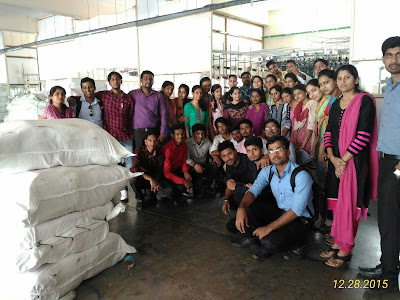First we would like to thank BVB- SMSR for giving this opportunity to be a part of this event (BIG DAY).
The concept of BIG DAY came into existence by Big Bazaar on four particular days of the year. They have started this with the intention to collect huge revenues by providing heavy sale offers.
 |
| Big Day - Big bazzar |
Well the BIG DAY event which was from 22nd jan to 26th jan 2016. Since these days have a significance of their own for the retail market, huge footfall is expected in the big-day sales.
We have always been tempted to visit BIG DAY sales as volunteers. But it was a great experience for us to be a part of BIG DAY, however, as far as our experience will go as retailers.
It helped us to learn practically which was more easier to understand then theoretically, In real life this kind of practical learning will help the students and we can easily understand the classroom learning by doing practical things. In retail industry to reach targets in a particular time is a challenging task which we could achieve it in a given period, and it was possible only because of the learning that we got in our classrooms and which we implemented on the field. Through this event we also analysed different kinds of human behaviours and Etc
Being marketing students it helped us to acquire the on field knowledge about the retail industry and also made us to build our work network with the employees as well as the customers.






